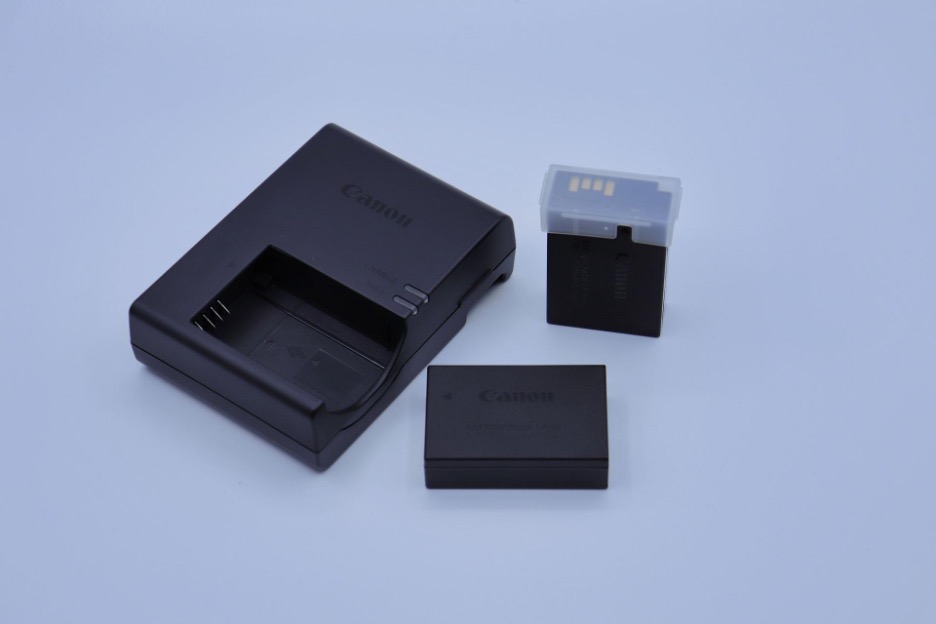How to Conserve Your Camera's Battery Life
This entry was posted on November 28, 2022.
If you've ever been mid-shoot only to realise that your camera battery is running low, you'll know how stressful and frustrating it can be. Whether you're photographing a little one's birthday party or a family gathering or you're working as a professional photographer, having a charged battery is vital. Otherwise, you run the risk of missing excellent shots, not to mention it can be a bit embarrassing! This is why it's essential to know how to conserve your camera's battery life, regardless of the type of photography you do. Below, we have listed some of the key ways to help your camera battery last as long as possible.

Key Ways to Make Your Camera's Battery Last Longer
- Turn Your Camera Off When Not in Use - This might seem like an obvious suggestion, but you would be surprised at the number of people who don't turn their camera completely off when it's not in use. Though the camera might just be sitting on the side, not being used, the battery could still drain a considerable amount. This is largely due to the LCD, especially if it's a large screen or it has a touchscreen interface. However, you should also avoid turning the camera on and off, on and off; every time you do, the camera uses and loses battery.
- Utilise the Optical Viewfinder - If your camera has an optical viewfinder, using it could help to conserve battery life. LCD and electronic viewfinders use a surprising amount of power, so avoiding these wherever possible can make a big difference. Once you have taken a photo, have a quick look and then avoid repeatedly checking it out. Instead, wait to look at your images once you have uploaded them to a computer. Similarly, avoid playing around with the optical zoom for too long, as this can also drain the battery.
- Avoid Using the Flash - You can make your camera battery last longer by not using the flash wherever possible. Of course, sometimes a flash is necessary to capture the perfect shot - especially if you are shooting in low light or at night - but sometimes simply changing the exposure or ISO settings is enough, allowing you to avoid the flash altogether. Everything a camera does drains the battery in some way, but using the flash is one of the more battery-consuming tasks.
- Store Your Batteries Correctly - Many people make the mistake of thinking that you need to completely drain a battery before recharging it, but this isn't the case. The majority of camera batteries can handle frequent charging, but they can't handle being stored incorrectly. It's important to store batteries in a cool and dry place, as exposure to sunlight and heat could cause energy loss. When you are out and about, make sure to keep your camera battery stored correctly. You might also consider investing in a specialist camera bag, many of which have a separate compartment for storing batteries.
- Turn Off Wireless Connections - Technology development has resulted in many cameras having WiFi and Bluetooth capabilities. This is great in terms of improving what a camera can do, but using these connections can drain your battery. To ensure that your camera battery lasts as long as possible, make sure you turn all connections off when they are not in use. In the same way that Airplane Mode helps to preserve your phone battery, turning off WiFi and Bluetooth connections helps to preserve your camera battery.
- Invest in High-Quality Batteries - When it comes to choosing a battery for your camera, there are a lot of options out there. It's not a case of 'one-size-fits-all', nor is it a case of only having one or two batteries to choose from. When you are buying a new battery for your camera, make sure to invest in a high-quality and long-lasting option. Though this might be more expensive initially - compared to buying an affordable and budget-friendly battery - it's likely to last longer in the long run. Plus, high-quality batteries do a good job of retaining energy and keeping their charge. You will find that you need to recharge them less, which saves you time and reduces the risk of your battery dying midway through a shoot.
- Turn Off Stabilisation Settings - Stabilisation settings on a camera use a lot of battery power, so turning them off is key if you want to use your camera for longer. Though you will sometimes need stabilisation, especially if you are using a long and shaky lens, it's not always necessary. Many people use stabilisation and run down their battery when they could have captured a great image without it. When you are using wide and mid-range zooms, see what happens without additional stabilisation.
However, even with these tips and tricks, a camera's battery can only last so long. If you're out and about photographing, your battery is bound to run out eventually. This is why it's always a good idea to have a spare battery with you, just in case you should need it. The moment your battery starts to show signs of running low, you can replace it with one that is fully charged and ready to go. This means that you don't need to worry about your camera running out of battery, and you can photograph for a longer amount of time. It's a small thing to do, but it makes a big difference.
Buy Camera Batteries Today
At CameraWorld, we stock a wide range of batteries, so you won't struggle to find the ideal battery for your specific camera. Whether you are replacing an old and worn-out battery or you simply want a backup battery for long photoshoots, you will always find what you are looking for at CameraWorld. Find out more by browsing our camera range or getting in touch with the team.





